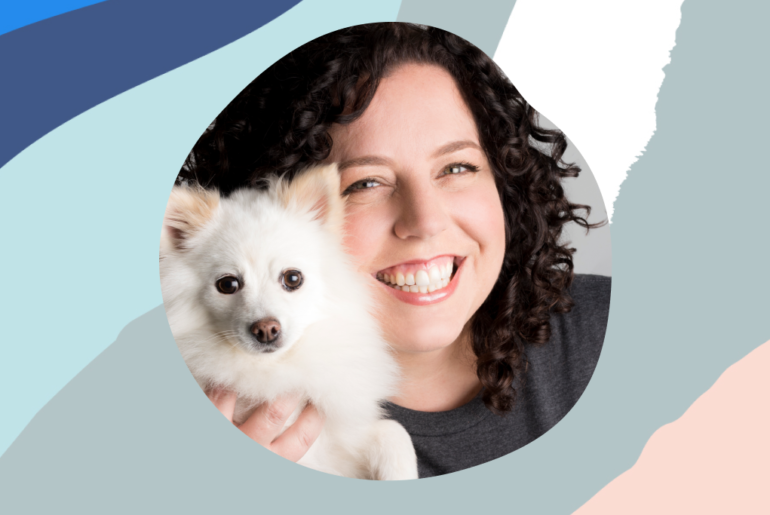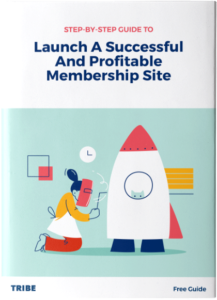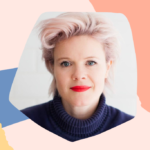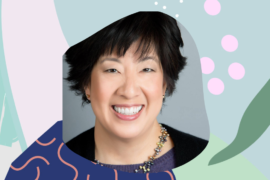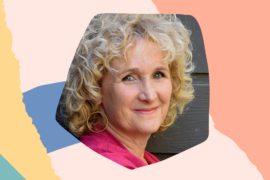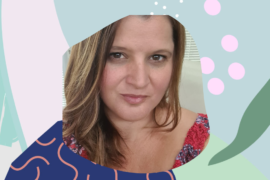Candace D’Agnolo left her corporate job at a big ad agency and spent over 15 years running brick-and-mortar businesses, including a pet supply store and a doggy daycare. She launched her own pet spas, and by the age of 28 had three retail locations in Chicago and 30 employees. However, she also had a massive amount of bank debt and SBA loans, and her husband wanted to take a job in New York.
Now, at Pet Boss Club, Candace provides business coaching and mentorship for entrepreneurs in the pet industry. She helps them build businesses that create thriving communities, impact their local economies, and act as positive change agents in the lives of pets, customers, employees and other small business owners.
Today, Candace joins the podcast to share the story of her journey to entrepreneurship, how mentorship and coaching changed her life, and how she now passes that gift on to others in her field through a scalable, thriving membership business.
Key Takeaways
- Why Candace started to feel taken advantage of while running a business she loved for someone else – and how this ultimately inspired her to launch businesses of her own.
- Why cash flow and personnel issues led Candace to hit bottom and hire the business mentor who changed her life.
- What happened when Candace realized that one-on-one coaching wasn’t scalable.
- Why increasing the price of her membership site helped Candace massively grow her business.
- How Candace got to show up and help her members’ businesses survive the COVID-19 pandemic.
Free Give
FREE Guide – Launch & Grow a Profitable Membership Site
Ready to reclaim your time and attract more monthly paying customers? Our step-by-step guide will show you how to build a membership site that turns your passion into recurring profit. Click here to download!
Memorable Quote
- “Education without action is just edutainment.” – Candace D’Agnolo
Episode Resources
Transcript
Read The Transcript
[INTERVIEW]
Shelli Varela: Candace D’Agnolo, welcome to the It’s a TRIBE Thing Podcast. Buddy, how are you?
Candace D’Agnolo: I’m doing well, Shelli. How are you?
Shelli Varela: I’m doing awesome. I was reading through your bio and all of the things that you’re up to and I love that you did a launch in 11 days where some people, myself included, have dragged their feet but you are a grip-it-and-rip-it kind of girl. So, I’m excited to dig into how you quickstart in your ideas. But before we get there and before we talk about your membership, I would love it if you could share with our amazing audience how you became the person who has your membership up, Pet Boss Club, and who you were before you were the Pet Boss Lady.
Candace D’Agnolo: Before I was the Pet Boss which is kind of funny that I am known for that now. So, I have actually been in the pet industry since 2004. So, it goes way back to when one of my girlfriends, her mom had bought this little doggy bakery and I eventually led unto a career where I spent, gosh, over 15 years in the brick-and-mortar retail, physical pet supplies space, dog daycare grooming, all of that, like chained to my businesses in a physical sense.
Shelli Varela: So many people can relate to that, that’s for sure.
Candace D’Agnolo: Yes. And I found my way into retail because actually, it started even before that. I went to college at DePaul University in Chicago and I always loved advertising. I always thought I would work at this big corporation. And I worked really, really hard to get the internships at all the places and get that big corporate job at the big ad agency. And I got the job at the big ad agency and then I had a horrible position way at the bottom looking at Excel spreadsheets in a cubicle for many, many hours.
Shelli Varela: Yeah. You’re like, “This is terrible.”
Candace D’Agnolo: Horrible. I was like, “This is not the creative advertising job I thought that I was going to have,” and I think my client was like Morgan Stanley too. And I was like, “How am I on this like financial plan?” It was a client, this financial plan. It was super boring for a 21-year-old. So, I ended up leaving that job to paint murals for kids’ rooms because I had always had this art background and I was making way more money painting murals than I was working in that cubicle but I didn’t realize that I had no savings. So, what happened when I wouldn’t have a mural job? I hadn’t thought that far ahead. My parents had. They warned me about that but, you know.
Shelli Varela: You’re like, “Yeah. My parents don’t know anything.”
Candace D’Agnolo: Yeah. So, I was painting murals and then to find clients for the mural business, I started working at a children’s furniture store because I thought, “Well, that’s a great way to meet clients. If you’re going to get a mural, you’re redoing a kid’s room so why not a kids furniture store?” And then there I realized I really loved retail. I loved merchandising, looking at the products, signage, helping customers. Eventually, it just stumbled into this business with my friend where her mom had bought this like doggy pastry bakery business, and this is back in 2004. Well, actually, I think they bought it in 2002 and I mean to have a doggy treat bakery business, that was like almost unheard of at the time. Now, it’s pretty common but back then, it just seemed like a lot of fun and I ended up helping her because I wasn’t making any money. I wasn’t painting murals anymore And I thought, “Well, it’d be fun. We’ll work together and it’ll be like playing with dogs all day. It’s going to be a blast.”
And it was. I got to play business with somebody else’s business. And in that moment, I really realize like I really love retail, I love brick-and-mortar, and I love this component of the dogs. Because for me even in my own life, dogs have always played this like friendly-consistent role. I moved all the time growing up, not for any particular reason. It just is like what happened. But dogs like the family pets were the one consistent friend. I mean, I had to go to almost a different school every year. And so, making new friends was part of the routine but the family pets were always like that one constant.
Shelli Varela: So, that was always like a touch tree or an anchor for you. Everything else was out of sorts. You always had the dog.
Candace D’Agnolo: Yeah. And they don’t judge us. They love us unconditionally. And so, I’ve always had this connection with animals. So, when I started in this role at that doggie bakery, I basically told them that because they didn’t really seem like they liked that company. I said, “Why don’t you go try something else? You didn’t have a job or this was the first job and it was gifted to you from your mom after college.” So, I was like, “Why don’t you just go figure out if there’s something else you want to do? You can trust I’ll run your business. Let me run your business.” And so, that’s what I mean by I got to play with someone else’s business but I grew it and I learned that I really loved it. Eventually, I just started to feel like I was being taken advantage of. I was underpaid. They weren’t coming into the business anymore. They weren’t helping with the priorities of their own business and I just got to this point where I’m like, “I care about this way more than you do.”
Shelli Varela: And let me just ask you that. What does that feel? Because I know there are so many people listening that are maybe in a similar situation where you’re working yourself to the bone and I remember the quote. It’s like get busy building your dreams or you’ll spend the rest of your life building someone else’s. What did that feel like caring about somebody else’s business more than they did? And how did that lead you to your next step?
Candace D’Agnolo: Yeah. I think for me what was so frustrating is I just saw the opportunity that was there and I saw the demand and desire of what could be really great. But I couldn’t do it alone and I was at the time, again, only mid-20s. I really didn’t know much of what I was doing. It was just a kind of guesswork. And I’d say when it gets to that point where you’re caring more and you see the opportunity and you’re not making a lot of money or that like I wanted to be also engaged with other people and I felt it was very lonely and isolated. And I just thought like I can’t stay like this. I’ve got to make a shift or a pivot or change. At the time I didn’t know what it was. I thought, “Okay. I could either go back to school,” but now I’m a few years out of college. Even if I went to a totally different degree, I’d be starting all over at the bottom again in corporate America.
Shelli Varela: And also, to your point, I mean, your previous experience, you went to school and you came out you were making more money doing the thing that you loved. Well, I’m sure there was some sort of internal turmoil where you’re like, “Do I do that again to end up doing the thing I love at some other point?”
Candace D’Agnolo: Yeah. So, I think it got down to what ended up happening is I thought, okay, I could start my own business. And actually, I tried to buy their business from them and I had it evaluated and even after me helping grow the business, it really wasn’t even worth what they had paid for it. So, they had overpaid for it when they bought it. And for me, I knew I’d have to get a business loan and I wouldn’t even be able to get a loan for what they were wanting to sell it to me for. At the time, my family was very much like, “We can help you. We’re there to support you.” I am very fortunate I come from a family that has a lot of small business owners and my grandfather has built with the help of his family, my aunts and uncles, and even my mom and cousins, have built a very large company. And so, they have some good connections to local banks and understand how to write business plans and getting the financial plan together. And they basically said, “If you’re willing to write your business plan and do a five-year profit and loss projection then we will introduce you to the bank and we can essentially come and cosign.” My uncle offered to cosign on a loan for me because I didn’t own any property.
So, I spent months. I moved back home with my parents. I started working on the business plan researching. The internet was around but it wasn’t around like it is now. Google was not quite what it was or is now. And so, writing the business plan, doing the profit and loss, and even now as I help business owners now, profit and losses people are always like, “How do you do that?” That’s all a guesstimate. You’re just going to make some really good educated guesses on what the future holds. So, I’d gotten my business plan together, my profit and loss, and the meeting was scheduled with the bank to go in to do my pitch. And the night before, my uncle who was going to cosign got cold feet and he’s like, “I can’t. I’ve got two young girls. I can’t cosign on this for you like what if this doesn’t work? Having a dog boutique and business like that’s crazy. Like I know you live in Chicago but like that’s…” because they’re down in Central Illinois. They were like this just seems like really strange. They didn’t believe that I could keep it open, I guess, or that customers would shop there.
So, I panicked. I was like, oh my gosh, the day before. So, fortunately, though, my grandpa and my grandma stepped up and they helped me out and they helped me out actually a lot throughout those years. So, I ended up opening my very first, my own store called Dogaholics in Chicago in 2006 and it was a blast. This was like when Paris Hilton and Nicole Richie had their little TV show with their little dogs. It was called like the Simple Life or something, and everyone was getting their little dogs and dressing their little dogs. And so, we actually had a very successful first year and it had tons of its own problems though. But after year one, we had hit that five-year profit and loss projection. For that year one, I hit it pretty close because I was able to play with somebody else’s business and I understood a lot of the average sales and the amount of traffic I might be getting and how many people are going to be able to convert which is so interesting because in the digital marketing world. It’s very similar to the physical world in that sense.
Shelli Varela: With less overhead.
Candace D’Agnolo: Yes. Way less overhead. Oh my goodness.
Shelli Varela: So, hence less stress also.
Candace D’Agnolo: Yeah.
Shelli Varela: Awesome.
Candace D’Agnolo: And so, a year after, my mom thought it would be a good idea for me to open another location. I don’t know that I was really prepared and ready, but she just kept like, “Nope, we’re going like you can do this.” So, we opened a second store and then a year later, due to construction, I needed to move that store, but I couldn’t get out of a lease that I was in so I converted that space to a doggy daycare and grooming and training facility. And so, by the age of like 28, I had three locations in the city of Chicago, about 30 employees.
Shelli Varela: That’s crazy. Like how did I end up here?
Candace D’Agnolo: Pretty much and I was $400,000 in bank debt and SBA loans and family loans. I was drowning. I didn’t know what I was going to do and then I got married and then the recession started. So, this is 2008, 2009. The recession started and everything started to fall apart. And I was at my, what I would say, like definitely my rock bottom because I was stuck between this place of my marriage was falling apart and my husband at the time wanted to take a job in New York. And I thought, “Okay, if he wants to go to New York and I can’t follow him.” I have three businesses in Chicago that literally aren’t worth anything at this point. And anybody who would even want to buy my businesses couldn’t get approved for a loan to do so. And I thought, “Well, how am I going to pay back that $400,000?”
Shelli Varela: That’s a really heavy kind of stuck because you’re stuck in location, you’re stuck financially, and then you’re stuck with your little spirit where you have this idea and you make it happen, and then all of a sudden the thing that was lighting you up is now burdening you. What did the transition look like? Because you did end up opening a membership site. So, how did that happen? You have three stores, you’re 28 years old, your husband’s moving to New York, you’re in Chicago, you’re burdened with all of these things. What happens next to bring you to where you are now?
Candace D’Agnolo: Right. So, now what I offer is I do business coaching and mentorship for business owners who are in the pet industry. And we help them with marketing, sales, leadership, and a variety of other things. And my love for educating the small business owner came because at my rock bottom, I ended up hiring my first mentor and coach and there were courses but they were all on CD ROMs and spiral-bound notebooks and webinars, I don’t think it even really existed at the time. Maybe you can call into a conference line and listen in.
Shelli Varela: Can I just pause you for one second? At what point was your rock bottom? Was it the point where you had the three stores and you were just completely flooded and overwhelmed with burden and stress and heaviness?
Candace D’Agnolo: Yeah. I mean, cash flow was a big one. One store was underperforming because of the lack of traffic and foot traffic in that neighborhood because no one was traveling, the hotels. I mean, if we go back, like no one was traveling. All the hotels were suffering and so the tourism was way down in Chicago. And so, one store was just drowning financially. And then the doggy daycare, I just couldn’t get the team hired. I would pay people, interview people that were supposed to start. They would not show up. They would say they were getting that business off the ground for me but weren’t really doing anything.
Shelli Varela: In full acknowledgement for you, at that point to go, “You know what I’m going to do, I’m going to do the thing to help me and then hire a business mentor.”
Candace D’Agnolo: Yeah. I mean, I didn’t know how I was going to pay for it. I wasn’t even paying myself. I mean, we were broke. So, rock bottom for me was I thought I was going to have to potentially file for bankruptcy. And at the same time that I’m going through that thought or just close everything and again feel like all my hard work was worth nothing. I’m in the end and that my marriage was over and everything else, one of my employees was stealing from me too. Yeah, it was really bad like a lot of money. But she got charged and I had gotten my peace and we got some money back from all that, but that was rock bottom and I was like I don’t know how I’m going to get this to survive. And so, I actually ended up going to a retailer conference. It was a one-day workshop at the Merchandise Mart and it was about brick-and-mortar retail and how to survive. And so, I went to that and I just felt inspired and inclined and I was like, “I need to do something. I’ve got to invest in myself. I’ve got to learn what I don’t know.”
And so, working with that person and then continuing to like it was like the veil would be lifted about self-development and business education. I thought I just like wasn’t even aware that these people are out there to help us. And so, because I’ve been so like stuck in my own hamster wheel just going around and around or my own goldfish bowl I couldn’t see up and really anything outside of the overwhelming chaos that was in my life. So, we started working one-on-one. I got really dedicated to learning the things I needed to know and then not just learning them, but actually implementing and taking action. One of my mentors has said, education without action is just edutainment.
Shelli Varela: Say that again.
Candace D’Agnolo: Education without action is just edutainment.
Shelli Varela: That’s powerful.
Candace D’Agnolo: I love learning now. I have to remind myself that too like we see so many different Facebook Lives we can jump on or courses we can take and now with Facebook, all the ads that pop in our feeds. It can be overwhelming and we have to remember that, look, focus on the thing you want to learn about and then go start implementing. Otherwise, it is at this point for me, I love business. It isn’t a form of entertainment for me.
Shelli Varela: So, your membership site, let’s segue into that because you hit rock bottom, you hire a business mentor. And in the pre-chat, you were talking about how you went to a conference to support your friend and then the conference was on subscriptions. At that conference, you happen to hear a guy named Stu McLaren speak. Talk about that and how you made that transition.
Candace D’Agnolo: So after, I’ve been able to successfully sell by this point two businesses and so despite all those struggles, I was able to now kind of come out on top and I wanted to help support other business owners. I realized the one-on-one coaching just like wasn’t going to cut it. People were, one, most people can’t afford private coaching and mentorship but also I realized that like one-on-one is like you’re trading your time for dollars and it’s just not scalable but it also doesn’t make the kind of impact that I wanted to make and then I knew that we could make. And so, when I went to this subscription conference, again, I hadn’t even realized, “Oh, subscription businesses like that make sense. That’s a really interesting idea. I wonder if I can apply that to my coaching business.” So, yeah, I heard Stu speak and I actually just followed him for a couple of years.
I was able to get my membership off the ground where we started and I spent about a year where I was just trying to attract the ideal customer to find customers. I ran some Facebook ads to a free group. I was in that free group giving away great value building community, but I spent about a year where I was trying to get the membership off the ground. I was scared to death to sell it. I don’t know. It was like I hid for about a year-and-a-half but I was building this audience and building a community and brands were so excited about what I was doing for the pet industry but I hid. And I got to about probably 65 members on my own. And then I saw one of Stu’s ads for TRIBE. I thought, “You know what, I need to just like invest in this guy and the TRIBE Community.” And then once I joined and jumped in and again, it was like wow there’s so much more to this membership type business that I didn’t know and we’ve been able to now grow greatly because of principles we put in place. And so, now we have about 250 members. Our price point is three times what it was when I first started.
Shelli Varela: Did I read this correctly that you increased your price and got more members?
Candace D’Agnolo: Yes. So, when I first met Stu, our price was $99 a month, which is still higher than what a lot of my competition in the industry is doing here in the pet space. And so, even Initially, I was like, “Wow, like I’m able to charge more per month for this because of the value that we bring even though like maybe on a sales page, it might look like these two businesses are very similar,” but based on what other people in the industry are charging, I was way more expensive mainly because I believed in the value. I believed in what we were giving. I was going to show up for everybody and I thought we give them so much good stuff. So, I was in. I was with some other mentors too and they were like, “Candace, your membership should be at least $297 a month, maybe even more,” and I thought, “Well, that’s stretching it.” But I thought, “Okay, I can go to $149.” And then so we ended up raising the price to $149 and I did Stu’s principles and, yeah, we brought in more members than we’ve ever brought in and I basically had increased the price greatly and significantly. And so, it was wild to me. I was like, “This guy must be like they know what they’re talking about over here.”
Shelli Varela: That guy knows a thing or two.
Candace D’Agnolo: This is nuts. And then I did it again like in, I guess, January when I opened my membership again and I love to TRIBE Live. I’ve been to a lot of business conferences and had different mentors and mastermind groups and at TRIBE Live I was like, “I finally found my people.”
Shelli Varela: Yes, such big hearts and collaboration over competition.
Candace D’Agnolo: Yes. And so, in our membership, we tie in at the collaboration. So, we actually have already been saying and using community over competition in our membership because in the pet industry, our core customer, our brick-and-mortar business is in local cities, and they oftentimes see the other small business owner as their competitor in town and they don’t ever communicate. They’re really not that friendly to each other. I mean to the point we’re even at like a Bark in the Park kind of a pet rescue thing, they won’t even make eye contact or say hello, when in reality their biggest competitor are big boxes and online. And so, in Pet Boss Nation and with our club membership, we do not give exclusivity. We remind people that they are there because community is greater than the competition. And I firmly believe that when any storefront is filled with a small business owner, that’s a success for that community versus a big box.
Shelli Varela: Well, it allows for expansion as opposed to protection and constriction, right? It allows for people to band together and create something together in many cases even if that’s just a community and a culture. And I don’t say even if like that’s a small thing. That’s a huge thing.
Candace D’Agnolo: Yeah.
Shelli Varela: So, what difference is having the membership had in your life and what advice would you give to somebody who right now is considering maybe would a membership be possible for me?
Candace D’Agnolo: Yeah. I mean, what’s so cool about memberships is that reoccurring revenue that comes in and I also, though, love that you can just start to help more people and get your message out there. I think really like it’s been amazing even in 2020 with COVID and how small businesses were impacted. We had this already like our group and our community was so strong that it was there for them during this really challenging time. And in my mind, I mean, we were 24/7 doing Facebook Lives. We were watching the news, trying to understand all of the PPP money and EIDL money and the CARES Act and we would gather that information and share it with the community, not just clients but even our larger community and the overwhelming like, “Thank you. This distilled the information for me. I’ve been so busy working in my shop or freaking out about how to what to do with my kids,” that they needed that place and that support system to all come together. And when I look back at that even moment in the spring, I mean, it was exhausting in April and May for us personally to like be there for hundreds and hundreds of people in that way. But when I look back into this, if I didn’t start this in the beginning like the impact we just had in these local communities would never have happened.
Shelli Varela: For sure. And how was your stress level been when you talked about having three stores and one of them was underperforming? How’s your stress level now as opposed to then?
Candace D’Agnolo: Now, like membership, because like you said, the overhead is just so much less than physical space. Physical space, you’ve got your rent and different insurance. You usually have to have employees and a lot more employees in the team there. But I also just started to really think more about the liability, the liability that existed with the physical spaces, especially because I was caring also for people’s animals. That’s a big team and I thought, “Well, gosh, if an animal were to hurt one of my team or if my team was in a car accident while driving around the doggy daycare transport vehicle or if a dog passed away in our care,” like, I mean, all of these things were like that anxiety and stress was way more than what we have now. Now, while there’s still plenty of money to spend to building a membership depending on what your goals are, it is definitely like less stress, way less stress.
Shelli Varela: Brilliant. So, what advice would you give for somebody who was wondering like my niche is maybe smaller or they’ve never heard of somebody else doing it. So, back in the day, you hear about the subscriptions model and you had the brilliance of combining and I just wanted to circle back on this for everybody because you combined all of your breadcrumb clues of things that you love that led you to where you are now. So, you were in ads, then you have retail and then you were in the pet space, in the pet business and now you’re supporting pet business owners. So, it’s really interesting to watch your progression of putting everything that you love in a melting pot and then ending up in the perfect place. So, for those people right now who are thinking, “Well, I love this and I’m good at that and maybe could that be a membership?” what would you tell those people?
Candace D’Agnolo: I actually believe now that almost anything can be a membership.
Shelli Varela: I would too.
Candace D’Agnolo: It really is and even for myself I thought, “Okay. Do I start a retail coaching business that’s for all retail like not niching in pet but just like all retail that’s out there?” because I thought maybe even just niching in pet was too small. I thought, “Well, maybe there’s only, gosh, how many stores?” There’s only 4,000 physical stores in the whole country but I was like, “Well, how many of those do I really need?” But what happened is that we niched even outside of just the retail now but niching in other areas of pet. But what I’ve found and discovered through the TRIBE Community is that you can have a ton of success hyper-niching,
and now I’ve even thought, “Well, how do I even niche down even more potentially inside our community?” And it’s really because when I say like I think if anyone’s thinking about doing something, it’s not so much about, I mean, sure, some ideas might be a little crazy but it’s really more about the execution and what it is you’re going to be providing to your ideal member and what you’re going to make possible for them, what’s either of interest to them or what do they want?
Do they want to learn a new skill? Do they want to try something new? Do they need to reconnect in some way with the community? There are so many ways that a membership can impact a person’s life that I would just say go for it. It’s worth trying. It’s always worth trying.
Shelli Varela: You said something absolutely genius that maybe somebody at the very beginning of the starting blocks might not consider. I find oftentimes when people are thinking about, “Should I do a membership or can I do a membership?” they think about all of the things that are challenging or that they don’t know. But when you focus on the bigger picture and what you said was it’s what it makes possible for other people. So, people will perhaps think, “Well, would somebody want to buy that membership?” So, there are features and benefits. There’s the thing it provides but then there’s the benefit of what it provides. And the ripple effect of that, to your point even about the community, is astronomical. So, it’s what you make possible for your potential members. This is incredible. If people are looking for you online, where is the best place they can find you?
Candace D’Agnolo: Well, they can visit PetBossNation.com and they’ll be able to get ahold of us there or we’ve got a gazillion Facebook groups. Just search Pet Boss Nation on Facebook and you’ll find us.
Shelli Varela: Awesome. Well, thank you so much for coming. This has been great and thank you for sharing your journey and your story.
Candace D’Agnolo: Well, thanks for having me.
[END]
To learn more and get access to all episodes, visit our podcast page!
